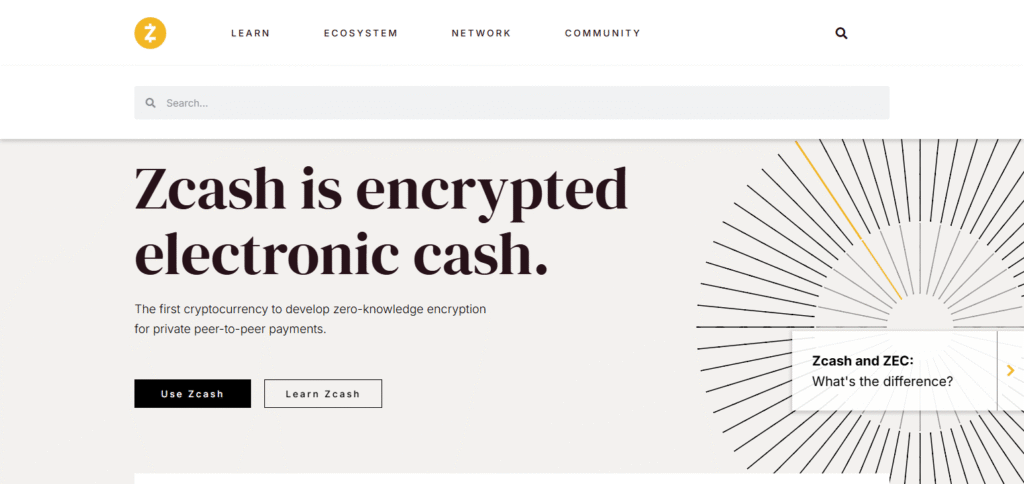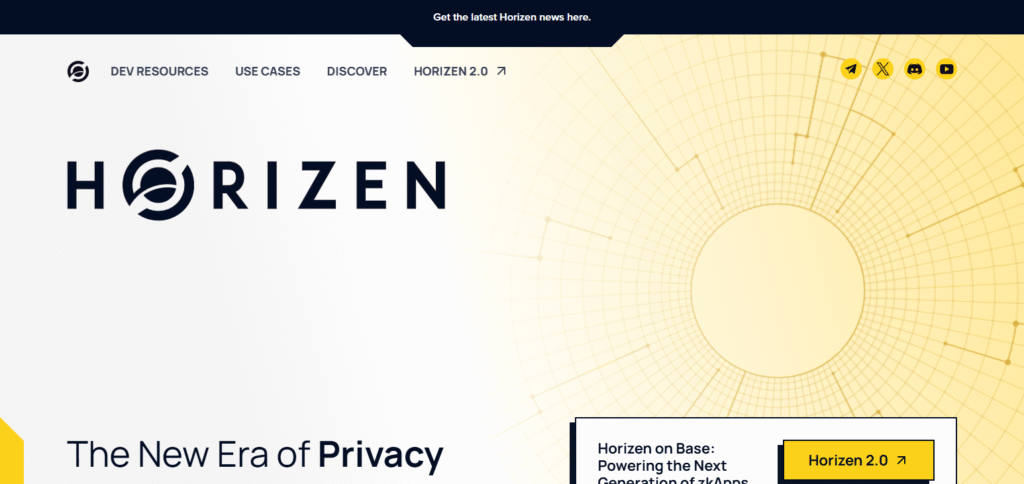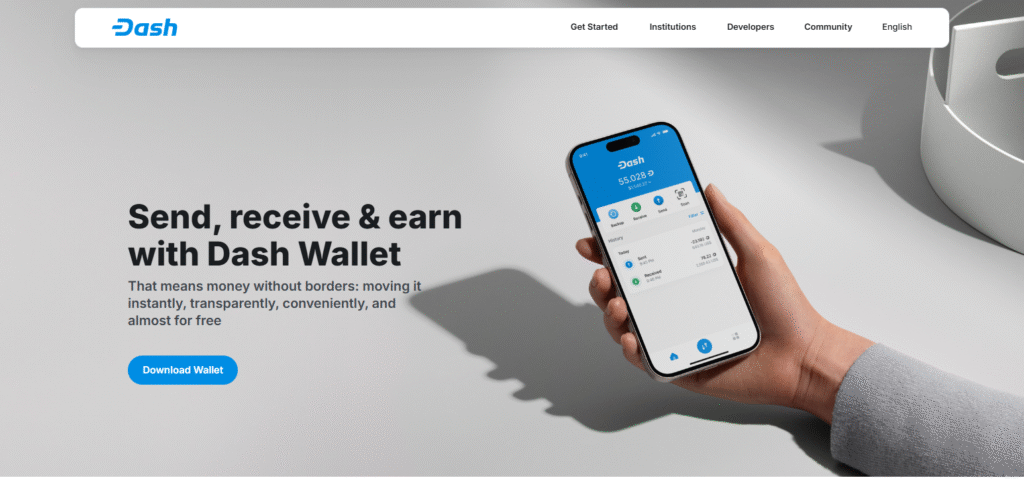In this article, I will analyze Which Blockchains Have Built-in Privacy Features. With the growing need for privacy in the online space, many blockchain networks have adopted sophisticated techniques to mask the user’s identity as well as the transactions they conduct.
Such privacy-sensitive blockchains provide secure and private transactions while protecting critical information, which increases the level of security for the users in the decentralized world.
What is Blockchains?
Blockchain refers to a distributed ledger technology that is secure, transparent, and immutable. A block contains records of transactions which are connected to the previous blocks chronologically like a chain.
Due to the way each record depends on the previous one, tampering with data is extraordinarily difficult. Although Blockchains are integrated with cryptocurrency systems such as Bitcoin, they can also be applied to managing supply chains, the voting process, and verification of one’s identity.
The absence of central controllers improves trust when conducting peer-to-peer transactions since it automates security protocols without human intervention.
Which Blockchains Have Built-in Privacy Features
Monero (XMR):
Monero is a confidentiality-centric blockchain because it automatically protects the privacy of all transactions. It employs stealth addresses that conceal recipients’ information, Ring Signatures that obscure the sender’s identity amidst a cluster of other senders, and Ring Confidential Transactions (RingCT) which hides the value of the transaction.

Unlike some cryptocurrencies, Monero does not let users disable privacy options which enforces a high level of anonymity across its network. Each coin is purposely built for privacy, making Monero the best fungible cryptocurrency for secure and private digital transactions.
Zcash (ZEC):
Zcash is an innovative blockchain that supports a transparent form of a cryptocurrency as well as shielded transactions. Zcash allows users to conceal the transaction value, sender, and recipient while still proving the transaction using a zero-knowledge proof known as zk-SNARKs.

z-addresses provides full privacy and function as transparent addresses (t-addresses) do just like Bitcoin for users who want the option for public audibility: Zcash’s transparent privacy setup makes it appealing for regulated financial environments where privacy is mandatory but auditability is required.
3. Secret Network
Secret Network is the first blockchain with private smart contracts that allow computations on encrypted data. Unlike typical blockchains where all data is public, Secret utilizes TEEs (Trusted Execution Environments) to ensure that the inputs and logic to contracts are concealed from nodes and observers.

This permits developers to construct privacy-preserving dApps that deal with sensitive data such as health records, identity documents, or private financial transactions. It’s perfect for users and enterprises wanting to merge the transactional nature of blockchain with the secrecy of traditional systems, thereby enabling privacy use cases not feasible on public blockchains.
4. Horizen (ZEN)
Horizen is a blockchain ecosystem centered on privacy that uses sidechain technology and zero-knowledge proofs to deliver customizable privacy. Its mainnet supports public and shielded transactions through zk-SNARKs.

Horizen is particularly distinguished due to Zendoo, the sidechain enabling developers to author scalable, privacy-preserving applications with their own rules of consensus.
By permitting the divorce of the mainchain’s security to the dApp’s logic, Horizen enables the use of privacy at scale. Users can take advantage of optional privacy features which makes it ideal for individuals and enterprises requiring confidential transactions without having to sacrifice scalability or performance in decentralized applications.
5. Dash (DASH)
Dash is a type of cryptocurrency that incorporates optional privacy features through its PrivateSend functionality. Developed from Bitcoin’s code, Dash has swift and inexpensive transactions, but adds privacy by permitting users to mix their coins using an internal coin-mixing service.

PrivateSend employs the CoinJoin technique which obscures the source and target of the funds by pooling numerous transactions into a single transaction. Dash is not as private as Monero or Zcash, but it offers a middle ground for those who value usability and anonymity.
Pros & Cons of Blockchains Have Built-in Privacy Features
Pros
More Privacy for Users
Blockchains that focus on privacy enable full obscurity. They conceal identities, transaction levels, addresses, and various other crucial financial data metrics.
Fungibility
Since coins are indistinguishable from one another, their acceptability remains untouched. No issue revolving around “tainted” coins arises.
Resistance to Censorship
Since private transactions have reduced risks, they are less likely to be tracked or blocked by governments, corporations, or any malicious actors.
Flexibility of Use-Cases
Private identity systems related to finance, healthcare lower value identity systems, and various other personal data sensitive sectors function ideally.
Cons
Issues With Regulations
Privacy coins could encounter constraints or bans in specific nations failing to comply with anti-money laundering (AML) protocols.
Less Support From Exchanges
Many centralized exchanges are reluctant to offer privacy-based coins due to high compliance concerns, negatively affecting liquidity as well as accessibility.
Greater Complexity from a Technical Point of View
Having privacy elements such as ring signatures or zk-SNARKS tend to increase the quality of computation. This may complicate the process of audits as well as debuging.
Potential for Misuse
These blockchains can be misused for illegal behavior often leading to a skewed public viewpoint and harsh scrutiny.
Importance of Built-in Privacy Features in Blockchains
Preserving the identity, financial metrics, and transaction data of an individual requires built-in privacy features in blockchain technology. For instance, all information in Bitcoin blockchains is transparent which may lead to surveillance and potential abuses like data mining and misuse.
Privacy oriented blockchains encrypt sensitive information through advanced cryptography techniques, ensuring transactions are confidential by default.
This enhances individual freedom and helps maintain business confidentiality while securing use cases like healthcare and identity management. In summary, built-in privacy features enhance security, trust, and the fundamental principles of decentralization.
Conclusion
To wrap up, various blockchains have been created from the scratch or modified to improve user privacy using sophisticated cryptographic methods. Monero and Zcash provide the greatest anonymity in transactions, while Secret Network and Horizen offer privacy in both transactions and smart contracts.
Users who require discretion but prefer flexibility have optional privacy features with Dash. These blockchains are vital in safeguarding financial privacy, allowing the development of secure applications, and giving users control over their information in an almost open world. It all depends on what level of privacy and ease of use one requires.










